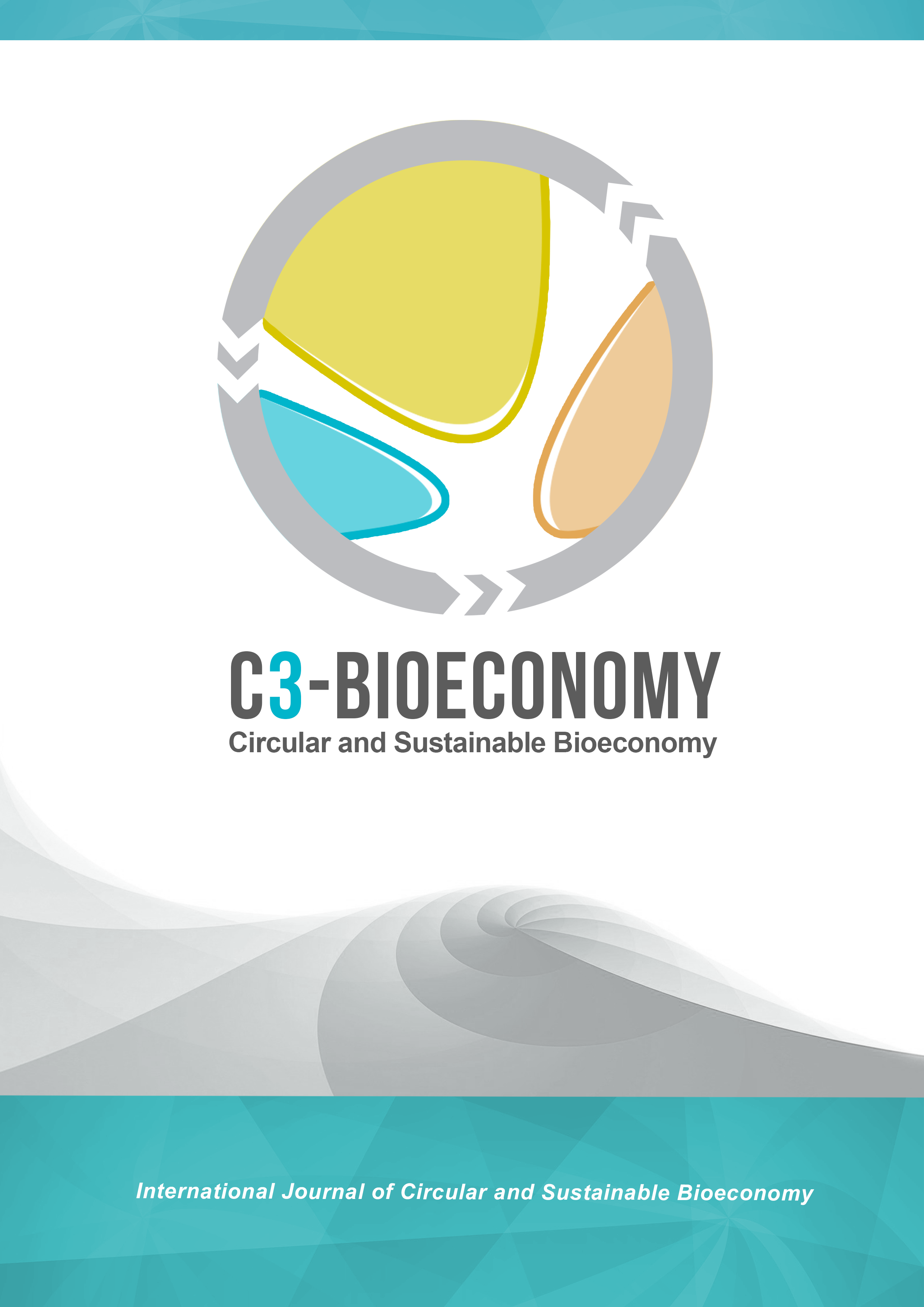Developing of New Technologies Driving Advances in Precision Agriculture to optimise inputs and reduce environmental footprint
Main Article Content
Abstract
Technological advances in the agri-tech sector offer the opportunity for food production systems to contribute to achieving global policy aims such as achieving net zero carbon systems and reducing environmental footprint through eliminating harmful emissions and increasing biodiversity. A range of sensors can detect crop health and stress due to biotic and abiotic threats, often with an early detection which permits appropriate action to be taken before crop yield is affected or pest and disease pressure cannot be controlled without the use of synthetic pesticides. Detection technology uses imaging techniques, often beyond the visible spectrum, detection of volatile compounds using e-nose techniques and real time molecular diagnostic techniques to identify plant pathogens collected in air samples. The data generated by such technologies relies on connectivity of the hardware and subsequent analytical processes to provide growers with temporal and spatial information. It is possible to identify plant locations with great accuracy, even with satellite systems, which permits precision application of crop inputs, such as fertilisers and pesticides, directly to the plant or crop area as required. Spray application techniques can now treat individual plants, both crop and weeds, using data acquired to control the flow to individual nozzles
Downloads
Publication Facts
Reviewer profiles N/A
Author statements
Indexed in
-
—
- Academic society
- N/A
- Publisher
- Universidad de Córdoba
Article Details

This work is licensed under a Creative Commons Attribution-NonCommercial-NoDerivatives 4.0 International License.
Proposed policy for journals offering open access. Those authors who publish in this journal accept the following terms:
a) Authors will retain their copyrights, but guarantee the journal the right to the first publication of their work, which will be simultaneously subject to the Creative Commons Recognition License , which allows third parties to share the work provided that the author and initial publication in this journal is indicated.
b) Authors may subscribe other non-exclusive license agreements for the distribution of the work published (for example: place it in an institutional electronic archive, or publish it in a topical volume) provided that the initial publication in this journal is duly noted.
Authors are allowed and even encouraged to disseminate their work via the Internet (e.g., in institutional electronic files or on their website) before and during the submission process, as this can foster valuable exchanges and increase citations of the work published. (See The effect of open access).
References
BILLER, R. H., HOLLSTEIN, C. & SOMMER, C. Precision application of herbicides by use of optoeletronic sensors. Precis. Agric. 2, 451–458 (1997).
CAMPBELL, C. (2021) SlugBot — How AI Is Addressing a Slimy Problem https://catriona-campbell.medium.com/slugbot-how-ai-is-addressing-a-slimy-problem-8c60b7277c41
G. PERGHER, R. GUBIANI, S.R.S. CIVIDINO, D. DELL’ANTONIA, C. Lagazio Assessment of spray deposition and recycling rate in the vineyard from a new type of air-assisted tunnel sprayer Crop Prot., 45 (2013), pp. 6-14
GERHARDS, R., ANDÚJAR SANCHEZ, D., HAMOUZ, P., PETEINATOS, G.G., CHRISTENSEN, S., FERNANDEZ-QUINTANILLA, C. Advances in site-specific weed management in agriculture—A review (2022) Weed Research, 62 (2), pp. 123-133.
GILES, D.K., DELWICHE, M.J. & DODD, R.B. Control of orchard spraying based on electronic sensing of target characteristics Trans. ASABE, 30 (1987), pp. 1624-1630
LONGLONG, L, CHEN, L, ZHANG, R, TANG, Q, YI, T., LIU B & DENG, W. Spray drift characteristics of pulse-width modulation sprays in wind tunnel. International Journal of Agricultural and Biological Engineering. Volume 15, Issue 4, Pages 7 - 15July 2022
MILLER, P C H, TILLETT, N D, HAGUE, A & LANE, A G (2012) The development and field evaluation of a system for the spot treatment of volunteer potatoes in vegetable crops. Aspects of Applied Biology 114, International Advances in Pesticide Application, pp. 113-120.
SALCEDO, R., ZHU, H., JEON, H., OZKAN, E., WEI, Z & GIL, E. Characterisation of activation pressure, flowrate and spray angle for hollow-cone nozzles controlled by pulse width modulation. Biosystems Engineering Volume 218, June 2022, Pages 139-152
VEYS, C., CHATZIAVGERINOS, F., ALSUWAIDI, A., HIBBERT, J., HANSEN, M., BERNOTAS, G., SMITH, M., YIN, H., ROLFE, S. & GRIEVE, B. Multispectral imaging for presymptomatic analysis of light leaf spot in oilseed rape. Plant Methods, Volume 15, Issue 124 January 2019 Article number 4


